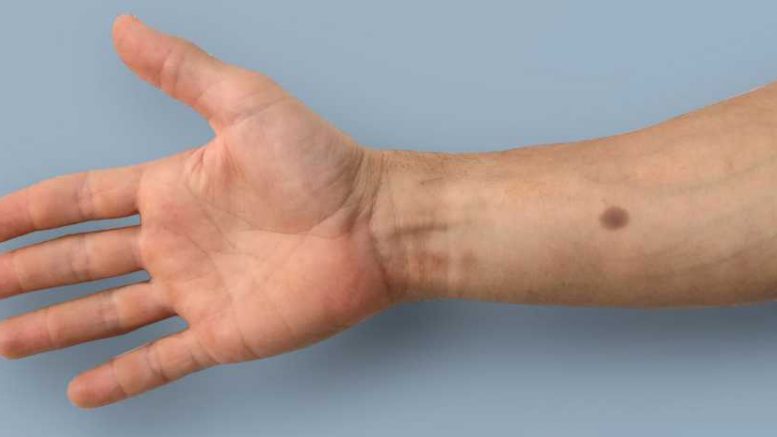Swiss scientists claim they’ve developed a new, modern way to detect if someone has cancer. What’s being called a “biomedical tattoo” is essentially an implant that turns a dark color when it detects the body is developing cancer symptoms.
The cancer tattoos or implants have been tested in animals. It targets early diagnosis of colon, prostate, lung and breast cancers.
Here’s how it is claimed to work.
When a cancerous tumor begins to grow, typically, calcium will be deposited into the blood. The implant will react to the increased density of calcium and turn a dark brown color, appearing almost like a mole.
“The biomedical tattoo detects all hypercalcemic cancers at a very early, asymptomatic stage,” lead author Martin Fussenegger, Professor at the Department of Biosystems Science and Engineering at ETH Zurich, told AFP by email.
“If blood calcium levels remain high over longer periods of time, the calcium sensor in the biomedical tattoo cells produces an enzyme, tyrosinase, which converts the amino acid into the black skin pigment, melanin.”
A person with the implant would, in theory, notice the dark spot on their skin at the site of the implant and notify their doctor that they need to be checked out. With cancer, clearly, early detection is one of the great defenders against the disease.
I’m not an enormous fan of implanting people with anything, because of course, the potential for negative consequences often outweighs any benefits. In this case, they’ve only experimented on mice, not humans.
The researchers say more research is needed before experiments on humans can begin.


Be the first to comment on "Biomedical Tattoos, or implants, being studied for human cancer prevention"